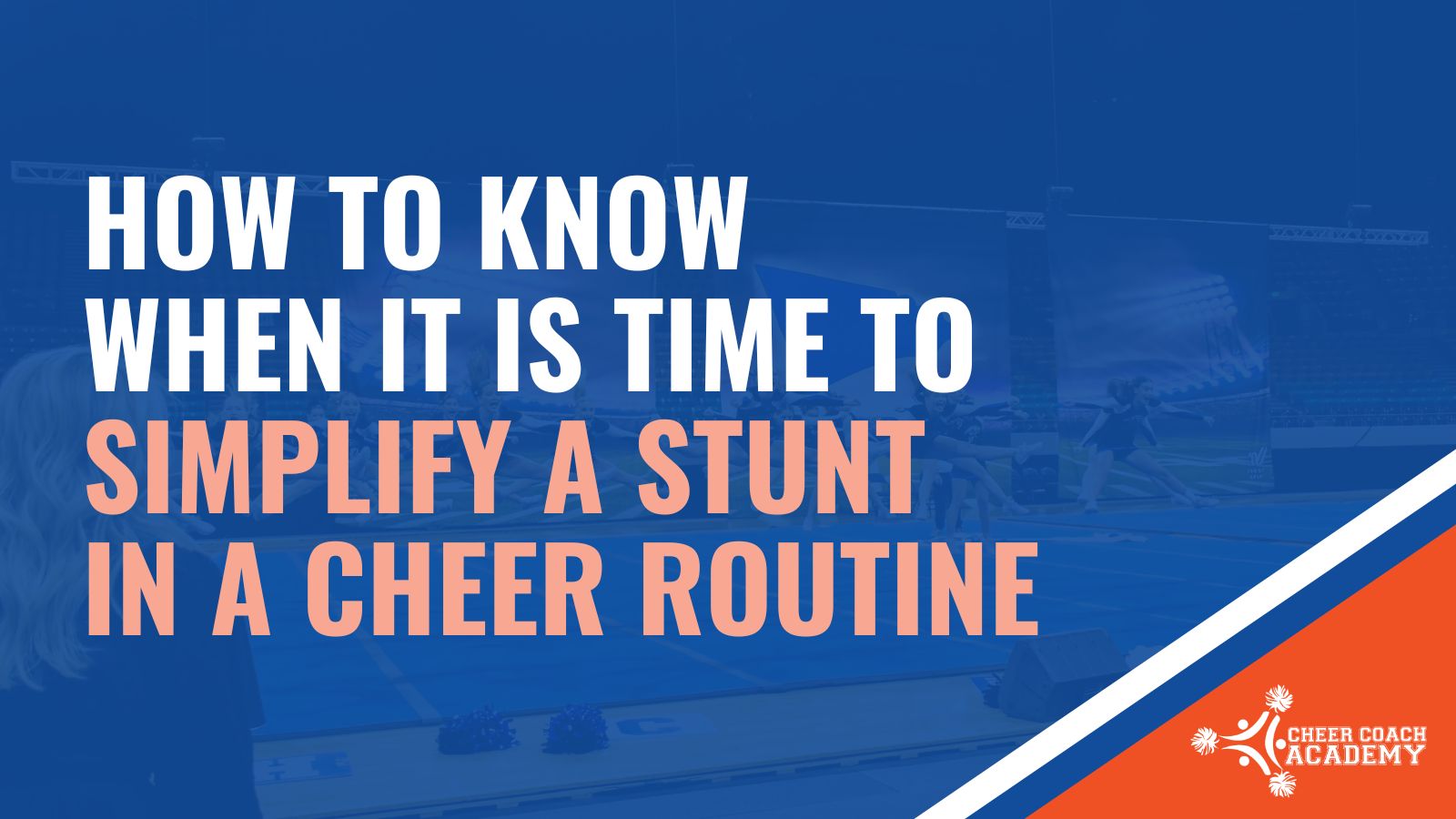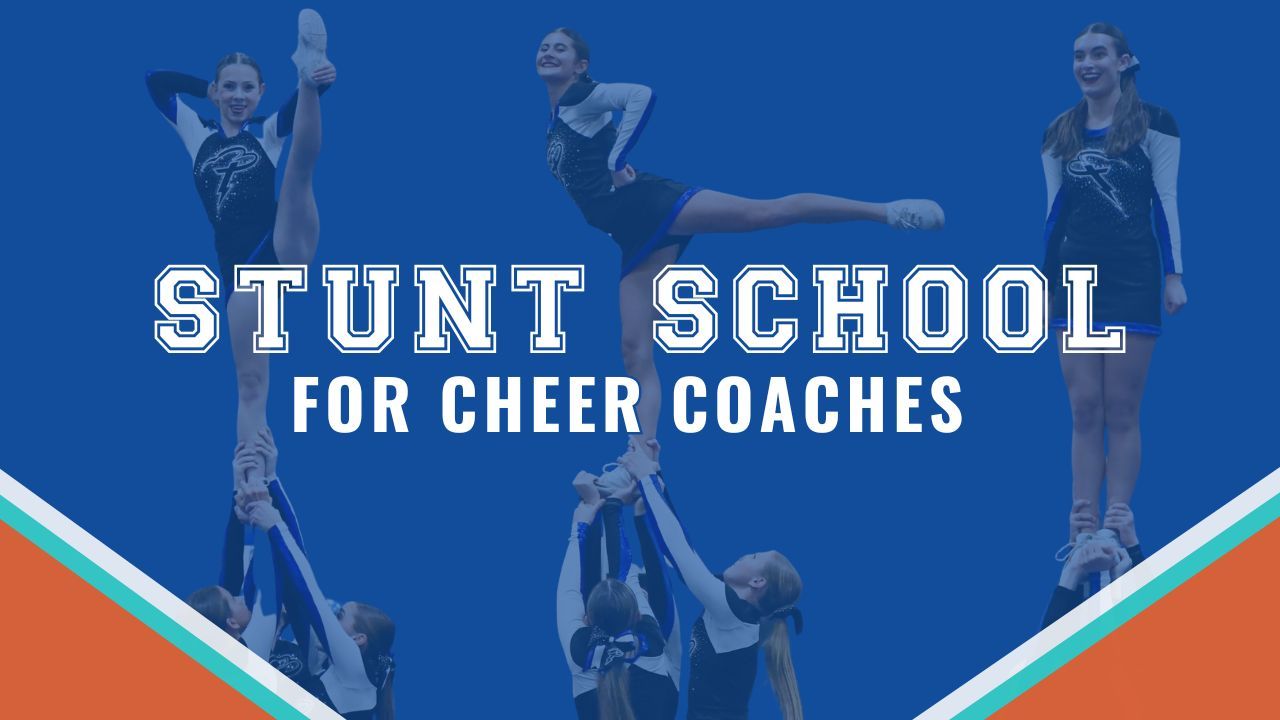How to Know When It Is Time to Simplify a Stunt in a Cheer Routine

I remember vividly in mid-September last year, my team being able to do a few stunting skills that I could not wait to have in the competition routine when the season started in late October. They still needed to be cleaner and more consistent, but we had time.
One of the skills was never performed at a competition that season. Another skill was not consistent and we took it out before State. Was it disappointing that my team did not do some skills I knew they were capable of doing? Yes, but the outcome that season was so much better.
We won our fourth state championship in a row with a commanding 18 point lead. We also won the NCA National Championship.
Extremely solid stunts and a very well executed routine won. The time we would have spent getting the more advanced skills would have taken away from the time we would have spent on cleaning the routine. It paid off - BIG TIME!
As coaches, we’ve all been there.
You have a stunt in the routine that your team has hit... once or twice. You know they can do it. You’ve seen it happen. And you want to believe they’ll hit it when it really counts on the competition floor.
But more often than not, holding out hope leads to disappointment and a lower score.
Here’s the hard truth: If your team isn’t hitting a stunt 95% of the time in practice, it’s time to simplify.
Not because they’re not capable. Not because you don’t believe in them.
But because hitting cleanly and consistently matters more than trying to force a stunt that isn’t competition-ready.
Let’s walk through how to confidently know when it’s time to adjust and how to set smart goals before making the call.
Set Clear, Measurable Stunt Goals
Before you even consider keeping a challenging stunt in your routine, your team should meet all three of these benchmarks:
- Hit with counts 5 times in a row.
- Hit with music 5 times in a row
- Hit in full outs and stunt-throughs 95% of the time.
Hit means: No falls. No bobbles. Just clean, controlled execution. “Almost hitting” doesn’t count.
Why Simplify? Because Clean Scores Higher.
It may feel like you're giving up by scaling back a stunt but in reality, you're strategically setting your team up for success.
Judges score:
- What hits (not what could hit)
- What looks controlled and confident
- What matches the skill level of the team
A slightly simpler stunt that hits will always score higher than a more advanced skill that is shaky. And don’t forget: A missed stunt impacts multiple areas of the scoresheet, not just an automatic deduction. It impacts difficulty, execution, technique, and even overall impression.
Don’t Wait Too Long
If you’re still hoping for “maybe it’ll hit” two weeks before competition... It's already too late.
You need time to:
- Practice the replacement stunt
- Condition it into muscle memory
- Fit it seamlessly into choreography
- Build team confidence
The earlier you simplify, the cleaner it will look by competition time. Take it from experience, simplify early.
Your Coaching Checklist
Use this quick guide when evaluating a stunt:
- Are we hitting this consistently (95%+ in full-outs)?
- Do the athletes look confident executing it?
- Are we seeing the same issues week after week?
If you check no to any of the above, it’s time to adjust.








